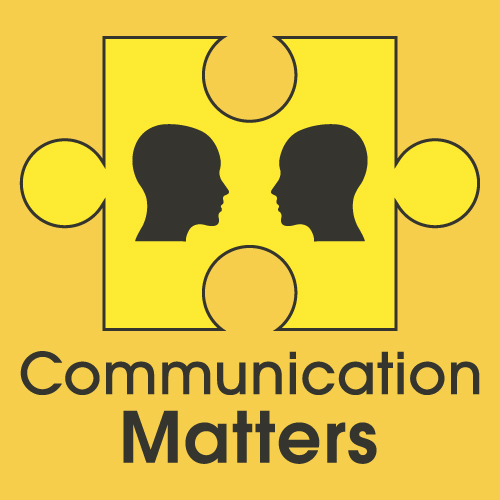This page focuses on what an Augmentative and Alternative Communication (AAC) assessment is and how it provides a gateway to further AAC support. For details of how Communication Matters believes access to services should change, visit our Improving Access page.
What is an AAC Assessment?
The purpose of an AAC assessment is to provide you with recommendations for you, your team and your environment that will improve the effectiveness of your communication using communication aids, strategies or technology.
Assessments can vary across England, Scotland, Wales and Northern Ireland, but will generally seek to assess an individual in the following ways:
- the discrepancy between understanding and speaking
- previous experience of AAC
- where, when and how you would like to use AAC
- current communication strategies
- most efficient access method for you, e.g. mouse, keyboard, switch, eye gaze.
The result of your assessment, along with where you live in the UK and your age, will determine whether AAC provision will be provided and/or funded locally or via Specialist Services.
Who provides AAC assessment services?
AAC assessment services are staffed by professionals who can assess, advise and make recommendations on the methods and services required to help improve your communication abilities. Start by looking into whether an assessment is available via the NHS, education setting or local authority or consider an independent speech and language therapists (SLTs) or occupational therapists (OTs).
During an assessment process, you may see a range of professionals including speech and language therapists, occupational therapists, teachers, rehabilitation engineers or clinical scientists. You are central to the assessment process, along with your family and personal assistants.
How long this takes and how many people are involved depends on the complexity of your needs and abilities.
What does a speech and language therapist (SLT) do?
The Royal College of Speech and Language Therapists (RCSLT) describe speech and language therapy as helping manage disorders of speech, language, communication and swallowing in children and adults.
SLTs assess and treat a person with specific speech, language and communication problems to enable them to communicate to the best of their ability. They work directly with people of all ages.
As allied health professional, SLTs also work closely with parents, carers and other professionals, including teachers, nurses and OTs.
What does an occupational therapist (OT) do?
The Royal College of Occupational Therapists says that OTs can help with everyday things in life when we have difficulty with these things.
Occupational therapy is the assessment and treatment of physical, psychological, social and environmental needs using specific, purposeful activity to prevent disability and help to increase people’s independence and satisfaction in all aspects of daily life.
How often do you need to be assessed?
Your needs may change over time and technology and techniques improve.
You may need to be reassessed to address your evolving communication needs and the services or technology that will support you more effectively in the future.
Accessing NHS Assessment Services
Accessing Independent Assessment Services
There can be a number of reasons for choosing to work with an independent assessment service provider (usually an SLT or OT):
- Local SLT services may not be available to you or may not have expertise that is relevant to your needs.
- You might not meet the specific eligibility criteria for your regional/local AAC service.
- You may have access to medico legal funding, local authority funding, charity or self funding that will enable you to access independent, relevant, experienced Assessment Services.
Not all independent SLTs or OTs will have the experience or skills that you need. Here are three useful questions to ask:
- What experience do you have in providing AAC assessment services?
- What experience do you have of working with someone with similar needs to mine?
- What experience do you have of AAC systems and technology that might be relevant to me?
National standards for AAC Services in England
The following documents outline the current guidelines and criteria for the national provision of AAC services:
NHS England Specialised AAC Service Specification (2016) Date of Review December 2018
NHS England Specialised AAC Service Eligibility Criteria
Guidance for Commissioning AAC Services and Equipment (2016)
RSCLT AAC Guidance (Last reviewed May 2024)
Please note, these documents are published by NHS England and RSCLT; Communication Matters cannot be held responsible for their content. We aim to keep these links under regular review.
